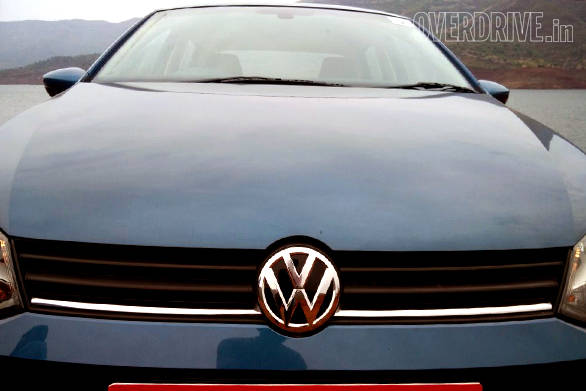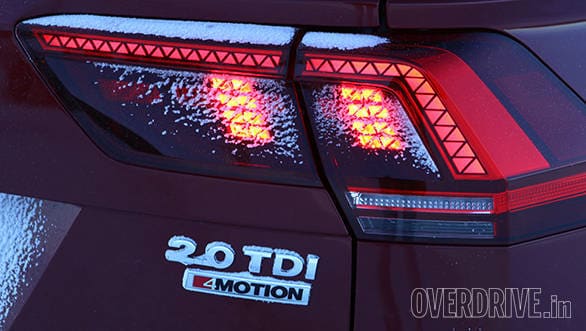VW Dieselgate: The full India recall will extend well into 2017
The Internet is awash with new reports that the Volkswagen Group in India will start its diesel recall in July and 1.9 lakh cars are to be called in for a fix. At a glance, it would appear that the ball is finally rolling on fixing one of the biggest recalls in India's automotive history. After all, it's been nearly a year since the shocking news emerged that cars from the Volkswagen Group using the EA189 series of diesel engines were emitting far, far more than their claimed emission numbers.
For those not aware, Volkswagen chose to use a 'defeat device' or a cheat software that recognized when the car was under emission testing conditions on a rolling road and varied the engine mapping to produce lower emission results. The deception weren't unnoticed for years. The truth finally surfaced when a team of scientists working for a USA-based NGO International Council on Clean Transportation (ICCT) set out to test cars in real-world conditions. They took three cars, two Volkswagens and a BMW on a road trip with emissions measuring machines in the boot fed by a pipe leading out of the exhaust. The result was shocking â€" the Passat displayed about 5-20 times higher than the standard emissions limit and the Jetta was polluting 15-35 times higher than the prescribed limit. The findings were provided to California Air Resources Board (CARB) and Environmental Protection Agency (EPA) for investigation. The rest is ugly, smoggy history.

Now let's rewind to early December 2015 when Volkswagen India announced that it would 'voluntarily' recall 3.23 lakh polluting cars in India from the entire group. Of these, roughly 1.9 lakh cars are Volkswagens and the rest come under sister brands, Skoda and Audi. Back then, we were told that the procedure would take time as the exercise was huge. The primary problem is that the EA189 family, which include the 2.0-litre, 1.6-litre, 1.5-litre and 1.2-litre diesels, are used in a huge number of permutations and combinations across the group. Power outputs differ, mated gearboxes differ, parts suppliers differ, engine management units differ, the list goes on. Consolidating all of this for millions of cars sold across the world is a gargantuan task.
Volkswagen is approaching this in a phased manner, taking the engines on one at a time. First, Volkswagen Germany has to come up with a viable solution and present that to the German authorities. Once accepted, that solution will be provided to Volkswagen India which will provide the same to the Indian authorities, in this case, the Ministry of Heavy Industries and ARAI. Only once the Indian authorities okay the fix, the recalls can begin in a phased manner.
As of today, where do things stand? The fresh news that you are reading online is not new and basically the same thing Volkswagen announced in December. What has changed in the last seven months is that the German authorities have only just okayed the proposed fix (see the Volkswagen press release below) for the 2.0-litre engines. This fix is already provided to the Indian authorities. This is about all we know for now.
The Volkswagen spokesperson we called had very little to share with us. How long can we expect the recall to be okayed in India? "In the near future but no confirmation if the July timeline being reported by other publications is accurate." Will this 2.0-litre fix be compatible with all 2.0-litre engines in India in all their permutations and combinations? Again, "we cannot confirm this". What percentage of affected cars are 2.0-litre diesels? You guessed it, no comment.

It's safe to assume that the majority of the cars affected in India are 1.2 and 1.5/1.6-litre engines. So here's the worrying part. In the very same press release below, Volkswagen AG has announced that the proposed fix for the 1.2-litre motors which was "initially planned for the second quarter of 2016 for affected cars with 1.2l TDI EA189 engines, will be delayed". So let us assume that the fix will be presented in Germany by mid to late 2016. Going by how long it has taken for the current 2.0-litre fix to reach Indian authorities, it's safe to expect the actual recall for smaller engines in India extending well into the first half of 2017, if not longer. That's a seriously long period for the hundreds of thousands of affected vehicles to keep spewing their toxicity into the air we breathe. If I owned a small Volkswagen diesel, I'd feel terribly guilty and highly frustrated.
In its December release, Volkswagen India maintains that its cars are not in violation of Indian norms. While these diesel cars may definitely be spewing out excessive pollution that is beyond the norms set in other countries it appears that they are still within Indian legal limits. As of today, Volkswagen India continues to maintain that its diesel emissions are within legal limits.ÂÂ
So why would Volkswagen bother to carry out a recall of such magnitude in India then? The company says this is mandated by headquarters so that every Volkswagen car around the world is technically in-line with the changes. We asked if the massive exercise makes financial sense, since in India it is still a voluntary move and the company responded that it does.ÂÂ
In its latest press release, Volkswagen AG claims that the fix will not affect the fuel efficiency, noise pollution levels or performance of the affected vehicles in any way. So why on earth did it cheat in the first place? There are some answers we may never get, but this debacle definitely puts a stronger case forward for stricter emission norms in India and a more comprehensive domestic recall policy.
PRESS RELEASE: VOLKSWAGEN A.G
• KBA issues approval for the software solution for over 800,000 cars
Today, Germany's Federal Motor Transport Authority (KBA) approved the technical solutions for the Volkswagen Passat, CC and Eos models with 2.0l TDI EA 189 engines. Over 800,000 vehicles affected by the diesel issue are now to be recalled as soon as possible. The affected owners will receive letters from Volkswagen and can then arrange a service appointment with a Volkswagen partner workshop without delay.
This is a continuation of the retrofit campaign for affected vehicles started by Volkswagen early this year. Jürgen Stackmann, member of the Board of Management of the Volkswagen Passenger Cars brand responsible for Sales, Marketing and After-Sales, said: "The launch of the retrofit campaign for the Passat, CC and Eos models involves a large number of cars that will now be recalled to the workshops. I am pleased that the retrofitting of over 800,000 of our customers' cars can now begin. Our dealerships and service partners are well prepared for the campaign."
German customers will be informed in two stages. In the first stage, all of the affected owners have already received a letter agreed with the KBA, which informed them that their car is covered by the retrofit campaign. Now they will receive a second letter, asking them to make an appointment with an authorised Volkswagen partner of their choice. In several stages, the owners of the affected Passat, CC and Eos models with 2.0l TDI engines with power outputs of 81 kW, 100 kW and 103 kW will also receive such a letter.
Following the retrofit, the cars will meet all legal requirements. The KBA has also confirmed unequivocally that the technical solutions for these models will not result in any changes to the fuel consumption, performance or noise emissions of the vehicles concerned. The KBA had previously confirmed this for all of the other vehicles for which the recall has been approved to date.
Volkswagen is working at full speed to implement the technical solutions and will rectify all vehicles affected by the NOx issue. This will be done in close coordination with the responsible authorities. Volkswagen customers will not incur any costs as a result of the technical measures. In addition, all customers will be offered a suitable replacement mobility option free of charge as part of the recall process. The launch of the recall campaign, which was initially planned for the second quarter of 2016 for affected cars with 1.2l TDI EA189 engines, will be delayed: Volkswagen expects to receive approval for the technical solutions for other high-volume models with the affected 2.0l TDI engines in the near future.
The vehicles affected are technically safe and roadworthy. They can be driven on roads without any limitations until the modifications are implemented. The implementation of the necessary technical measures is being carried out throughout Europe in accordance with a timetable and action plan coordinated with the KBA.